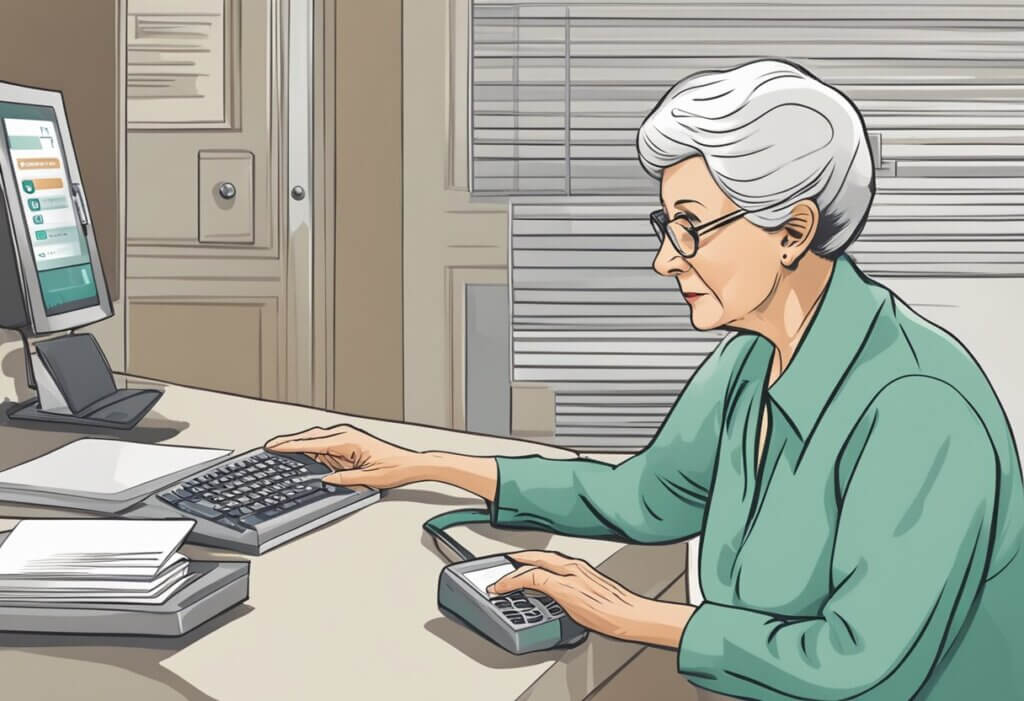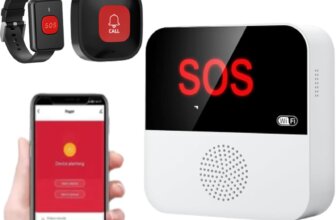If you’re wondering are any medical alert systems covered by Medicare, you’re not alone. The answer? Medicare typically doesn’t pay for these systems but don’t worry, there are other options available!
Medical alert systems can be a game-changer for safety and independence, so it’s worth understanding your choices. Let’s break this down step by step.
What You Need to Know
- Medicare doesn’t usually cover medical alert systems.
- Medicare Advantage plans may help but can come with extra costs.
- Other financial resources can help you afford one.
Medicare and Medical Alert Systems: The Basics
Medicare is a federal health insurance program for people aged 65 and older or those with certain disabilities. It has two main parts:
- Part A covers hospital stays and inpatient care.
- Part B covers outpatient care, preventive services, and medical equipment.

Unfortunately, medical alert systems aren’t covered because they’re considered home safety devices, not medical equipment.
What About Medicare Advantage Plans?
Medicare Advantage (Part C) is offered by private insurance companies and includes everything Original Medicare covers. Some plans offer extra perks like dental, vision, and wellness programs.
But Medicare Advantage (Part C) does NOT give us a definitive answer to the question: Are any Medical Alert Systems covered by Medicare!
While some Medicare Advantage plans may include home safety features, that is no guarantee that medical alert systems will be part of this extended package.
Always check the details of your specific plan to see what’s included.
Original Medicare vs. Medicare Advantage
Here’s a quick comparison to help you understand the difference:
- Original Medicare gives you flexibility in choosing doctors and doesn’t require referrals for specialists.
- Medicare Advantage may have a network of providers and require referrals, but it sometimes offers extra benefits.
Neither option typically covers medical alert systems, so it’s essential to evaluate your needs carefully before deciding.
When Is Coverage Possible?
While Medicare itself doesn’t usually cover medical alert systems, there are cases where financial assistance is possible.
Medical Necessity
In rare cases, a doctor might deem a medical alert system “medically necessary”, especially if you have:
- Severe mobility issues
- Chronic illnesses
- History of falls
Documentation from your doctor can help make a coverage case, but this is not guaranteed.
Durable Medical Equipment (DME)
Medicare covers reusable medical equipment like wheelchairs and walkers, but medical alert systems often don’t qualify as DME. Check your specific Medicare or insurance plan for details.
Other Financial Options
If Medicare doesn’t cover your medical alert system, here are some other ways to manage the cost:

Health Savings Accounts (HSAs)
- If you have an HSA, you may be able to use it to pay for a medical alert system if it’s considered necessary for your well-being.
- Ask your plan provider for details.
Veterans Benefits
- If you’re a veteran, the Department of Veterans Affairs (VA) might provide medical alert systems or help cover their cost.
- Contact your local VA office for more information.
Medicaid
Medicaid programs vary by state, but some may cover medical alert systems if you meet eligibility requirements. Check with your local Medicaid office to see if you qualify.
Local Assistance Programs
- Nonprofit organizations, senior centers, and Area Agencies on Aging often have resources to help seniors afford medical alert systems.
- Don’t forget to ask about grants or funding programs in your area!
Choosing the Right Medical Alert System
Picking the right system can feel overwhelming, but knowing what to look for makes it easier.
Important Features
Here are some features to consider:
- Emergency Buttons: A simple button for calling help in an emergency.
- Fall Detection: Automatically alerts help if you fall.
- GPS Tracking: Helps responders find you anywhere.
- Two-Way Communication: Lets you speak directly with emergency operators.
- Extras: Medication reminders, activity tracking, and more.
Pick a system that fits your lifestyle and needs.
Compare Providers
Not all companies are the same. Some trusted brands include:
Check reviews, customer service ratings, and features offered by each provider.
Look for:
- Discounts for veterans or seniors.
- Affordable monthly plans.
- Good customer support.
Understand the Costs
Medical alert systems often have upfront costs (for equipment) and ongoing monthly fees. Here’s how to keep costs manageable:
- Check if your insurance or HSA can help.
- Look for discounts or deals.
- Avoid contracts with high cancellation fees.
Bottom Line
Medical alert systems are an invaluable tool for maintaining safety and independence, even if Medicare doesn’t cover them outright. Exploring options like Medicare Advantage, Medicaid, or local resources can help you find a solution that fits your budget.
For more tips on staying safe and thriving in your golden years, check out our guide to Independent Senior Living.
Take your time to research and choose the best system for your needs – you’re worth it!






